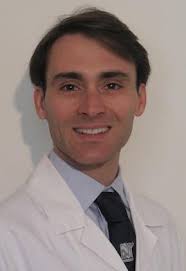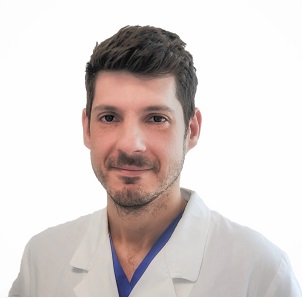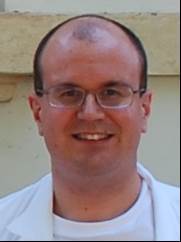Studying at the University of Verona
Here you can find information on the organisational aspects of the Programme, lecture timetables, learning activities and useful contact details for your time at the University, from enrolment to graduation.
Academic calendar
The academic calendar shows the deadlines and scheduled events that are relevant to students, teaching and technical-administrative staff of the University. Public holidays and University closures are also indicated. The academic year normally begins on 1 October each year and ends on 30 September of the following year.
Course calendar
The Academic Calendar sets out the degree programme lecture and exam timetables, as well as the relevant university closure dates..
| Period | From | To |
|---|---|---|
| INF VI 1° ANNO 1° SEM | Oct 5, 2020 | Dec 22, 2020 |
| INF VI 2° ANNO 1° SEM | Oct 5, 2020 | Dec 22, 2020 |
| INF VI 3° ANNO 1° SEM | Oct 12, 2020 | Dec 22, 2020 |
| INF VI 1° ANNO 2° SEM | Feb 1, 2021 | Apr 2, 2021 |
| INF VI 3° ANNO 2° SEM | Feb 8, 2021 | Apr 2, 2021 |
| INF VI 2° ANNO 2° SEM | Apr 19, 2021 | Jun 25, 2021 |
| Session | From | To |
|---|---|---|
| INF VI - sessione invernale | Jan 7, 2021 | Jan 29, 2021 |
| INF VI - sessione estiva 3° anno (1^ parte) | Apr 6, 2021 | Apr 16, 2021 |
| INF VI - sessione estiva 1° anno (1^ parte) | Apr 6, 2021 | Apr 22, 2021 |
| INF VI - sessione estiva 2° anno | Jul 5, 2021 | Jul 30, 2021 |
| INF VI - sessione estiva 1° anno (2^ parte) | Jul 12, 2021 | Jul 30, 2021 |
| INF VI - sessione estiva 3° anno (2^ parte) | Jul 19, 2021 | Jul 30, 2021 |
| INF VI - sessione autunnale | Sep 1, 2021 | Sep 30, 2021 |
| Session | From | To |
|---|---|---|
| SESSIONE AUTUNNALE | Oct 1, 2021 | Nov 30, 2021 |
| SESSIONE PRIMAVERILE | Mar 1, 2022 | Apr 30, 2022 |
| Period | From | To |
|---|---|---|
| FESTIVITA' OGNISSANTI | Nov 1, 2020 | Nov 1, 2020 |
| FESTIVITA' IMMACOLATA CONCEZIONE | Dec 8, 2020 | Dec 8, 2020 |
| VACANZE DI NATALE | Dec 24, 2020 | Jan 3, 2021 |
| VACANZE DI PASQUA | Apr 4, 2021 | Apr 5, 2021 |
| FESTIVITA' DELLA LIBERAZIONE | Apr 25, 2021 | Apr 25, 2021 |
| FESTIVITA' DEL LAVORO | May 1, 2021 | May 1, 2021 |
| Santo Patrono Vicenza | Sep 8, 2021 | Sep 8, 2021 |
| Description | Period | From | To |
|---|---|---|---|
| INF VI - tirocinio 2° anno 1^ esp | INF VI - tirocinio 2° anno 1^ esp | Feb 1, 2021 | Mar 5, 2021 |
| INF VI - tirocinio 2° anno 2^ esp | INF VI - tirocinio 2° anno 2^ esp | Mar 15, 2021 | Apr 23, 2021 |
| INF VI - tirocinio 3° anno 1^ esp | INF VI - tirocinio 3° anno 1^ esp | Apr 19, 2021 | May 28, 2021 |
| INF VI - tirocinio 1° anno 1^ esp | INF VI - tirocinio 1° anno 1^ esp | Apr 26, 2021 | May 28, 2021 |
| INF VI - tirocinio 3° anno 2^ esp | INF VI - tirocinio 3° anno 2^ esp | Jun 7, 2021 | Jul 16, 2021 |
| INF VI - tirocinio 1° anno 2^ esp | INF VI - tirocinio 1° anno 2^ esp | Jun 7, 2021 | Jul 9, 2021 |
| INF VI - tirocinio 2° anno 3^ esp | INF VI - tirocinio 2° anno 3^ esp | Sep 1, 2021 | Oct 1, 2021 |
| INF VI - tirocinio 3° anno 3^ esp | INF VI - tirocinio 3° anno 3^ esp | Sep 1, 2021 | Oct 8, 2021 |
Exam calendar
Exam dates and rounds are managed by the relevant Medicine Teaching and Student Services Unit.
To view all the exam sessions available, please use the Exam dashboard on ESSE3.
If you forgot your login details or have problems logging in, please contact the relevant IT HelpDesk, or check the login details recovery web page.
Should you have any doubts or questions, please check the Enrollment FAQs
Academic staff
 maribedin@libero.it
maribedin@libero.it
 michele.bertani@univr.it
michele.bertani@univr.it
Cunico Laura
 laura.cunico@univr.it
laura.cunico@univr.it
 chiara.gnata@libero.it
chiara.gnata@libero.it
 jessica.longhini@univr.it
jessica.longhini@univr.it
 massimo.manfridi@univr.it
massimo.manfridi@univr.it
 loredana.pancheri@univr.it
loredana.pancheri@univr.it
 elda.righi@univr.it
elda.righi@univr.it
 rafaella.visona@univr.it
rafaella.visona@univr.it
Study Plan
The Study Plan includes all modules, teaching and learning activities that each student will need to undertake during their time at the University.
Please select your Study Plan based on your enrollment year.
1° Year
| Modules | Credits | TAF | SSD |
|---|
Professional Laboratories (1st year)
2° Year activated in the A.Y. 2021/2022
| Modules | Credits | TAF | SSD |
|---|
Professional Laboratories (2nd year)
3° Year activated in the A.Y. 2022/2023
| Modules | Credits | TAF | SSD |
|---|
Professional Laboratories (3rd year)
| Modules | Credits | TAF | SSD |
|---|
Professional Laboratories (1st year)
| Modules | Credits | TAF | SSD |
|---|
Professional Laboratories (2nd year)
| Modules | Credits | TAF | SSD |
|---|
Professional Laboratories (3rd year)
Legend | Type of training activity (TTA)
TAF (Type of Educational Activity) All courses and activities are classified into different types of educational activities, indicated by a letter.
Biomolecular fondamentals of life (2020/2021)
The teaching is organized as follows:
Program
------------------------
MM: BIOCHIMICA
------------------------
Chemistry The matter: atoms, molecules. Atomic organization: atomic orbitals, energy levels Periodic table of the elements Chemical bound: covalent, ionic. Week interactions: hydrogen bond, van der Waals, hydrophobic interaction. Molecules: water. Properties and interactions in water. Solutions: definitions and concentrations (Molarity), osmosis. Buffer, pH. Chemical reactions: red/ox. Thermodynamic: Free energy (G), energetic potential of ATP, coupled reactions. Biochemistry Proteins: amino acids, peptide bound. Protein structures. Post translational modifications. Quality control for secreted proteins. Enzymes: kinetic, mechanism of action. Enzymatic inhibition. Allosteric regulation. Nucleic acids: nucleotides, DNA, RNA Sugars: simple and complex sugars. sugar bond, polysaccharides (starch and glycogen). Glycoproteins: blood groups. Membranes: properties, phospholipids, double layer. Lipids: fatty acids, cholesterol. Metabolism. general principles, regulations, hormones, vitamins. Sugar metabolism: glycolysis, regulations, alcohol fermentation, lactic fermentation. Pentose cycle. Citric acid cycle: oxidative phosphorylation, ATP synthase Gluconeogenesis. Fatty acid metabolism: fatty acid digestion, beta oxidation, ketone bodies. Fatty acid synthesis Protein metabolism: transamination. Urea cycle. Protein biosynthesis.
------------------------
MM: BIOLOGIA APPLICATA
------------------------
Synthetic program General characteristics of living organisms. - Life macromolecules: DNA, RNA, proteins. - Cell structure and function: general characteristics, separation of subcellular components. Plasma membrane, cytoplasm, nucleus. - The molecular basis of hereditary information. DNA characteristics, Watson and Crick model. DNA replication. - Gene expression. Genetic code, transcription, translation. Gene expression regulation. - Genetics. The composition of the genome. - Mutations: types and effects. Spontaneous mutations. Mutagenesis by chemical and physical agents. - Genome Organization. - Chromatin: composition and structure. - Chromosomes: structural patterns, karyotype, anomalies. - The cell cycle. Mitosis - Sexual and meiosis reproduction. Gametogenesis. Meiotic Errors: Aneuploids. The gene dosage and inactivation of the X chromosome, the determination of sex in the embryo. - Genetics. Transmission of hereditary characters, Mendel's laws. Genotype and phenotype, autosomal and sex-related inheritance. Interpretation and discussion of genealogical trees. Genetics of blood groups. Methods of transmission of genetic diseases in humans, calculation of risks. Molecular Diagnosis.
Bibliography
| Author | Title | Publishing house | Year | ISBN | Notes |
|---|---|---|---|---|---|
| Campbell et al. | Biologia e genetica | Pearson | 2015 | ||
| Solomon, Martin, Martin, Berg | Elementi di Biologia (Edizione 7) | EdiSES | 2017 | 978-88-7959-938-2 | |
| Bonaldo, Crisafulli, D'Angelo, Francolini, Grimaudo, Rinaldi, Riva, Romanelli | Elementi di Biologia e Genetica | EdiSES | 2019 | ||
| Terry A. Brown | conoscere la biochimica (Edizione 1) | Zanichelli ed., Bologna | 2018 | ||
| David L Nelson, Michael Cox | introduzione alla biochimica di Lehninger (Edizione 4) | Zanichelli ed., Bologna | 2011 | ||
| Solomon et al. | Elementi di Biologia | EdiSES | 2017 | ||
| Bonaldo et al. | Elementi di Biologia e Genetica | EdiSES | 2019 | 978-88-3319-038-9 |
Examination Methods
------------------------
MM: BIOCHIMICA
------------------------
Assessment for learning will be through a written multiple choice. 20 questions in each test. Test is formulated by an automated system by the "Centro docimologico di Ateneo". Basically, questions are randomly chosen from a database made by the teacher. Questions are randomly mixed in each test. A question and an answer sheet are nominated for each student. Answer sheet are automatically read by the system and results are sent to the teacher.
------------------------
MM: BIOLOGIA APPLICATA
------------------------
The assessment of learning outcomes envisages a written test to ensure knowledge of the topics under consideration. The written test potentially covers all the topics listed in the program. It is articulated in groups of question-related to the main themes of the course (life macromolecules, cell biology, cell interactions, genetic information flow, mendelian inheritance, human genetics). Items are formulated as multiple answer questions and open answer questions. The answer to each item requires knowledge of biological terminology, ability to interpret genealogy trees, ability to systematically connect knowledge of biology and genetic molecules, ability to describe and exemplify biological structures. The examination will be validated with a minimum score of 18/30. The overall evaluation of the answers to the questions is expressed in thirty/30. To help the student to understand the contents and the formulation of the items, the examination tests submitted in the previous year will be discussed in the classroom with the students of the following year.
Career prospects
Module/Programme news
News for students
There you will find information, resources and services useful during your time at the University (Student’s exam record, your study plan on ESSE3, Distance Learning courses, university email account, office forms, administrative procedures, etc.). You can log into MyUnivr with your GIA login details: only in this way will you be able to receive notification of all the notices from your teachers and your secretariat via email and soon also via the Univr app.
Gestione carriere
Orario lezioni
Si invitano gli studenti a prendere visione dei possibili aggiornamenti.
Indicazioni per l'iscrizione alla pagina moodle degli insegnamenti per il 1° anno
Si pubblica la programmazione annuale dell'attività didattica e tirocinio per l'anno accademico 2023-2024
AGGIORNAMENTO 25 MARZO 2024 Calendario lezioni 1°A. 2° semestre A.A. 2023/2024
AGGIORNAMENTO 15 APRILE 2024 Calendario lezioni 3° anno 2° semestre A.A 2023/2024
AGGIORNAMENTO 22 APRILE 2024 Calendario lezioni 2° anno 2° semestre 2023/2024
Documents
| Title | Info File |
|---|---|
|
|
pdf, it, 70 KB, 15/04/24 |
|
|
pdf, it, 60 KB, 22/04/24 |
|
|
pdf, it, 49 KB, 25/03/24 |
|
|
pdf, it, 528 KB, 13/07/23 |
|
|
pdf, it, 8849 KB, 13/10/22 |
Guida ai programmi degli insegnamenti
Guida ai programmi degli insegnamenti
Documents
| Title | Info File |
|---|---|
|
|
pdf, it, 1594 KB, 12/12/22 |
|
|
pdf, it, 1310 KB, 02/09/21 |
Graduation
Documents
| Title | Info File |
|---|---|
|
|
pdf, it, 242 KB, 19/01/24 |
|
|
pdf, it, 80 KB, 06/04/24 |
|
|
pdf, it, 43 KB, 06/04/24 |
|
|
pdf, it, 44 KB, 09/04/24 |
|
|
pdf, it, 148 KB, 06/04/24 |
|
|
pdf, it, 108 KB, 06/04/24 |
|
|
pdf, it, 115 KB, 06/04/24 |
|
|
pdf, it, 1487 KB, 18/02/22 |
|
|
pdf, it, 437 KB, 22/03/24 |
|
|
pdf, it, 957 KB, 22/03/24 |
|
|
pdf, it, 424 KB, 19/01/24 |
Linee guida per riconoscimento cfu
Lo studente che intende chiedere il riconoscimento di moduli o insegnamenti pregressi dovrà presentare domanda, entro il 30 novembre dell’anno accademico in corso, seguendo le indicazioni indicate al link seguente: https://www.univr.it/it/i-nostri-servizi/segreterie-studenti/gestione-carriere-studenti-medicina-e-chirurgia/riconoscimento-crediti-acquisiti-da-una-carriera-pregressa-medicina
Documents
| Title | Info File |
|---|---|
|
|
pdf, it, 295 KB, 09/11/21 |
Appelli d'esame
AGGIORNAMENTO 11 MARZO calendario appelli d'esame di APRILE 2024 per il 1° Anno
AGGIORNAMENTO 4 MARZO calendario appelli d'esame di MAGGIO 2024 per il 3° Anno
Documents
| Title | Info File |
|---|---|
|
|
pdf, it, 190 KB, 11/03/24 |
|
|
pdf, it, 194 KB, 04/03/24 |
|
|
pdf, it, 196 KB, 11/01/24 |
Student login and resources
Attività didattiche regime part-time
Modalità di richiesta
La domanda di iscrizione part-time può essere presentata all'inizio di ogni anno accademico e comunque entro il 30 novembre di ogni anno. Entro lo stesso termine, se necessario, lo studente potrà richiedere di tornare al regime full-time. Al link seguente la pagina del servizio https://www.univr.it/it/i-nostri-servizi/segreterie-studenti/flessibilita-nella-frequenza-dei-corsi/possibilita-di-iscrizione-part-time-e-ripristino-full-time
Una volta inviata la domanda, lo studente concorda in via preventiva con il Coordinatore della didattica professionale (CDP), il piano di studi che intende perseguire nel periodo di part-time compilando il modulo in allegato
Documents
| Title | Info File |
|---|---|
|
|
octet-stream, it, 1309 KB, 21/10/22 |

 +39 045 812 7053
+39 045 812 7053






















